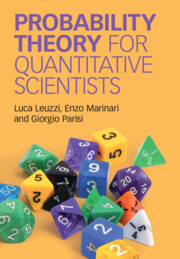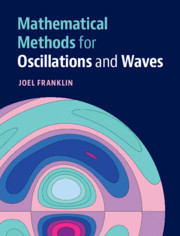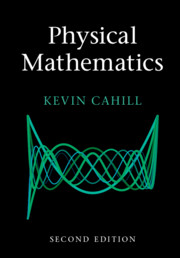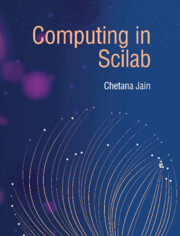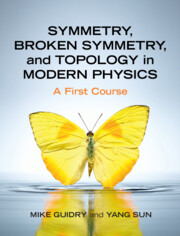Probability Theory for Quantitative Scientists
Based on the long-running Probability Theory course at the Sapienza University of Rome, this book offers a fresh and in-depth approach to probability and statistics, while remaining intuitive and accessible in style. The fundamentals of probability theory are elegantly presented, supported by numerous examples and illustrations, and modern applications are later introduced giving readers an appreciation of current research topics. The text covers distribution functions, statistical inference and data analysis, and more advanced methods including Markov chains and Poisson processes, widely used in dynamical systems and data science research. The concluding section, 'Entropy, Probability and Statistical Mechanics' unites key concepts from the text with the authors' impressive research experience, to provide a clear illustration of these powerful statistical tools in action. Ideal for students and researchers in the quantitative sciences this book provides an authoritative account of probability theory, written by leading researchers in the field.
- Offers an authoritative introduction to probability theory, with a wealth of examples and modern applications, making it an invaluable resource for both students and researcher
- Covers topics such as distribution functions, statistical inference and data analysis, and more advanced methods including Markov chains and Poisson processes, widely used in dynamical systems and information theory research
- The concluding section, 'Entropy, Probability and Statistical Mechanics' unites key concepts from the text with the authors' impressive research experience, to provide a clear illustration of these powerful statistical tools in action
Reviews & endorsements
'An outstanding book on probability, masterfully written by world-leading experts in the field. Both accessible and profound, it is destined to become a classic for physicists and quantitative scientists alike.' Ginestra Bianconi, Queen Mary University of London
'The book is a fascinating distillation of much of the useful parts of probability and statistics, with brilliant insights woven throughout. The connections drawn between statistical physics, the Fokker-Planck and Schrodinger equations are mind blowing.' Persi Diaconis, Stanford University
'Here, at last, is a book that strikes the right balance between a solid presentation of probability theory and examples of advanced developments in various fields of science…this is a must read for anyone who wants to understand the use of probability in data analysis, statistical inference, or stochastic processes, as well as its deep connections to statistical physics.' Marc Mézard, Bocconi University
Product details
August 2025Hardback
9781009580694
424 pages
254 × 178 mm
Not yet published - available from August 2025
Table of Contents
- 1. Introduction to probability
- 2. Probability distributions
- 3. Law of large numbers and central limit theorem
- 4. Large deviations
- 5. Statistical inference and experimental data analysis
- 6. Multivariate and correlated experimental data
- 7. Random walkers
- 8. Generating functions and chain reactions
- 9. Recurrent events
- 10. Markov chains
- 11. Numerical simulations
- 12. Correlated events
- 13. Continuous time Markov processes
- 14. Entropy, Probability, Statistical Mechanics.

